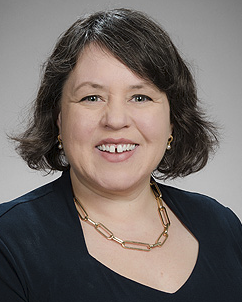
AAMC Integrated Behavioral Health (IBH) Learning Series: The Mental Health Access Crisis: How academic medical centers can use IBH models as part of the solution
-
Register
- User - Free!
Improving health care access is a key part of the AAMC Strategic Plan. The mental and behavioral health care (MH/BH) crisis and the need for academic medical centers to advance solutions to optimize patient outcomes has led AAMC to focus on integrated behavioral health models of care, which have a strong evidence-base of increasing access. Academic medical centers are well-positioned to be leaders in providing integrated behavioral health care but also face significant challenges. This series will be particularly valuable to health care providers, clinical and health system leaders, medical educators, and all others interested in integrated behavioral healthcare.
Register for all sessions in this series by clicking the green register button above. Please note that you can participate in multiple forums or choose individual sessions to attend.
-
Contains 2 Component(s) Recorded On: 06/13/2023
For this webinar we will hear from three institutions who have implemented IBH – two long established programs and a more recent adopter.
This is part of the AAMC Integrated Behavioral Health (IBH) Learning Series: The Mental Health Access Crisis: How academic medical centers can use IBH models as part of the solution.
Please join us for our final webinar in our IBH Learning Series. For this webinar we will hear from three institutions who have implemented IBH – two long established programs and a more recent adopter. We will hear about why and how they created their program, the lessons they have learned to be successful and the challenges they are still facing. There will be an interactive discussion between panelists and attendees addressing IBH at academic medical centers.
If you haven't already, please register for other sessions in the series here. Please note that you may participate in multiple forums or choose individual sessions.

Frank deGruy
Frank Verloin deGruy III, MD, MSFM, is a Professor in the Department of Family Medicine at the University of Colorado. Between 1999 and 2021, he was the Woodward-Chisholm Chair of that department. Dr. Frank deGruy’s career has been devoted to helping improve the health of people by creating a more coherent and comprehensive system of primary healthcare. He has led efforts to directly redesign the way primary care is structured and rendered, to train the primary care workforce, and to research answers to the questions about how to do this more effectively.
Dr. deGruy has also served as president of the Collaborative Family Healthcare Association (CFHA) and president of the North American Primary Care Research Group (NAPCRG). For ten years he served on the Board of Directors and the Executive Committee of the National Network of Depression Centers (NNDC) and served for twenty years on the Family Physicians’ Inquiries Network (FPIN). For ten years (2011-2021) he chaired AHRQ’s National Integration Academy Council, and sits on the board of the Colorado Institute of Family Medicine. He has published about 200 papers, chapters, and commentaries, and has reviewed grant applications for the NIH, AHRQ, HRSA, and the RWJF. He has been a member of the Institute of Medicine (now the National Academy of Medicine) since 2008. His current activities are aimed at community-based health improvement solutions, particularly for underserved and disadvantaged people.

Brandon Kitay
Dr. Brandon Kitay is an assistant professor in the Department of Psychiatry and Behavioral Sciences at the Emory School of Medicine and is the Director of Behavioral Health Integration for Emory Healthcare charged with developing mental health resources for both patients and providers that are timely, evidence-based, and at the appropriate level of care. Since joining Emory in 2020, he has successfully implemented the Collaborative Care Model (CoCM) in four primary care clinics serving over 40,000 primary care patients as well as an "interprofessional e-Consult" program to support clinicians throughout the Emory Healthcare Network in their psychopharmacology practice. He is a principal investigator on several active, multicenter clinical trials, one studying the impact of CoCM as an intervention for identifying and engaging patients in treatment for opioid use disorder (OUD) in primary care ("Collaborative to Health Addiction and Mental Health in Primary Care," CHAMP Trial) as well as a trial investigating the combination of esketamine and psychotherapy for major depressive disorder with suicidal ideation. His research interests include understanding how to optimize management decisions in the treatment of depression beginning with identification in primary care, implementing interventions to enhance access to somatic therapies for treatment refractory psychiatric conditions, and considering methods to scale behavioral health resources through use of mobile health (mHealth) technologies.

William Sieber
Dr. Bill Sieber earned his doctorate degree in clinical health psychology from Yale University, completing his internship at the Palo Alto VA/Stanford consortium. He is a Clinical Professor at UC San Diego in both the Department of Family Medicine as well as the Department of Psychiatry. He co-founded the UC San Diego Integrated Behavioral Health program that now includes dozens of behavioral health providers serving over 120,000 patients across 13 primary care clinics across San Diego county. He also serves as Associate Director of Research for the Department of Family Medicine. He is a Fellow in the Society of Behavioral Medicine and has served on their Board of Directors, has published dozens of papers in top-tier research journals, been a Principal Investigator (PI) or Co-PI on several grants examining the value of behavioral health providers on patient care, is a reviewer for over a dozen premier professional journals, and serves on the editorial board for Families, Systems, and Health, the premier peer-reviewed journal for integrated behavioral health. He has delivered engaging and value-laden continuing education workshops and keynote presentations to over 200,000 health care providers on topics including improving one’s physical and mental health, the management of anxiety, fatigue and insomnia, mindfulness, and the burnout of health care professionals.

Gene ‘Rusty’ Kallenberg
Dr. Gene "Rusty" Kallenberg is Professor Emeritus of Family Medicine and was the Chief of the Division of Family Medicine and Vice Chair of the Department of Family and Preventive Medicine at University of California, San Diego from 2001 to 2020. He is the co-founder of the IBH efforts at UCSD Dept. of Family Medicine, has been a member of CFHA for over 20 years and served on the Board of Directors and as CFHA President in 2014. He is also the Director of the UCSD Centers for Integrative Health and is a member of the Academic Consortium of Integrative Health and Medicine (ACIMH). Dr. Kallenberg’s interests include new models of primary care, integrated behavioral health in primary care, medical informatics, integrative medicine, learning health systems and undergraduate/ graduate medical education/competency assessment in communication skills, and doctor-patient-family relationships and professionalism.
-
Contains 2 Component(s) Recorded On: 05/24/2023
This installment will feature speakers from three academic medical centers who are exploring ways technology can improve access and efficiency for mental health, with a focus on automating screening in the electronic health record, implementing clinical care pathways and psychiatry eConsults in primary care, and utilizing mental health apps, such as online, self-paced cognitive behavioral therapy (CBT).
This is part of the AAMC Integrated Behavioral Health (IBH) Learning Series: The Mental Health Access Crisis: How academic medical centers can use IBH models as part of the solution.
AAMC’s third webinar in this series will focus on leveraging technology to expand access to mental and behavioral health and align with IBH models. This installment will feature speakers from three academic medical centers who are exploring ways technology can improve access and efficiency for mental health, with a focus on automating screening in the electronic health record, implementing clinical care pathways and psychiatry eConsults in primary care, and utilizing mental health apps, such as online, self-paced cognitive behavioral therapy (CBT).
Register for other sessions in the series as they become available here. Please note that you may participate in multiple forums or choose individual sessions to attend.
Coming soon...
In our final webinar, on June 13th, representatives from 3 academic medical centers in various stages of implementation will share their journey in utilizing IBH models at their institutions. They will cover common issues such as workforce, financial and operational exemplars, as well as lessons learned for those interested in implementing similar models.

Anita Arora
Assistant Professor in General Internal Medicine | Interim Director of Population Health | Regional Medical Director, Ambulatory Services | Physician Lead, Yale Clinical Optimization Services | Yale School of Medicine
Dr. Arora received her undergraduate degree from Pomona College and her medical degree and MBA from Dartmouth. She completed her Internal Medicine residency at Yale-New Haven Hospital and went on to complete the Robert Wood Johnson Foundation Clinical Scholars Program at Yale School of Medicine. As a clinical scholar, her research was focused on population health and well-being.
Dr. Arora currently serves as Associate Director of Population Health for Yale Medicine and Regional Medical Director for Yale Medicine Ambulatory Services. In these roles, Dr. Arora addresses operational issues and implements population health management strategies in order to improve access, quality, efficiency and coordination of care provided by Yale’s faculty-based practice. She also serves as Physician Lead for the Association of American Medical Colleges (AAMC) Coordinating Optimal Referral Experiences Project. In this role, she guides academic medical centers across the nation as they launch electronic consults and enhanced referrals, and collaborates with the AAMC team to develop strategies and priorities for the national initiative. Clinically, Dr. Arora practices medicine and teaches both residents and medical students at Cornell-Scott Hill Health Center and in the Generalist inpatient service at Yale-New Haven Hospital.

Dana Steidtmann
Senior Instructor and Associate Clinic Director at the Johnson Depression Center in the Department of Psychiatry at the University of Colorado-Anschutz School of Medicine
Dr. Dana Steidtmann is a licensed clinical psychologist, Senior Instructor, and Associate Clinic Director at the Johnson Depression Center in the Department of Psychiatry at the University of Colorado-Anschutz School of Medicine. Dr. Steidtmann currently serves as clinical lead for a pilot program providing computer-assisted Cognitive-Behavioral Therapy to adults experiencing depression, anxiety, and stress. Her research interests focus on strategies for making mental health treatments more effective, accessible, and affordable.

Rachel Weir
Chief of Mental Health Integration for the Huntsman Mental Health Institute at University of Utah Health (U Health)
Dr. Rachel Weir, MD, is the Chief of Mental Health Integration for the Huntsman Mental Health Institute at University of Utah Health (U Health). Dr. Weir has led efforts to expand access to psychiatric services across clinics and educates residents on primary care focused consultation models. She helped to establish the statewide child psychiatry access program and also served as the psychiatry lead for the implementation of the Collaborative Care model for depression in primary care throughout U Health.
Dr. Weir leads U Health’s systemwide mental health integration initiatives, including overseeing efforts to improve screening, follow-up, and access to care for patients with depression. In her work, Dr. Weir focuses on how medical and behavioral health providers can leverage technology to improve early detection of mental health disorders, standardize mental health treatment, and optimize patient outcomes using stepped care models.
-
Contains 2 Component(s) Recorded On: 05/11/2023
This session will examine the core concepts of interprofessional training (IPE) in integrated behavioral health. It will apply the principles of IPE to resident and faculty training and provide engaging case studies to familiarize participants with the nuances of team-based training and education.
This is part of the AAMC Integrated Behavioral Health (IBH) Learning Series: The Mental Health Access Crisis: How academic medical centers can use IBH models as part of the solution.
This session will examine the core concepts of interprofessional training (IPE) in integrated behavioral health. It will apply the principles of IPE to resident and faculty training and provide engaging case studies to familiarize participants with the nuances of team-based training and education.
Register for other sessions in the series as they become available here. Please note that you may participate in multiple forums or choose individual sessions to attend.
Coming soon...
Our third webinar, on May 24th, will feature speakers from three academic medical centers who are exploring ways technology can improve access and efficiency for mental health, with a focus on automating screening in the electronic health record, implementing psychiatry eConsults in primary care, and utilizing mental health apps, such as online, self-paced cognitive behavioral therapy (CBT).

Dr. Lisa Ramirez
Dr. Lisa Ramirez, PhD ABPP, a child psychologist at the MetroHealth System in Cleveland, OH, has witnessed firsthand the profound impact of the COVID-19 pandemic on the mental health of young people.
As a faculty member in MetroHealth’s integrated primary care program in pediatrics, Dr. Ramirez understands the potential of integrated behavioral health (IBH) models to expand access to mental health care among the pediatric population. At MetroHealth, a multi-disciplinary care team comprised of experts and learners in primary care, psychology, psychiatry and social work practice side by side in caring for the physical and behavioral health needs of the system’s youngest and most vulnerable patients. Their model has produced real results: through a combination of creating training pipelines, warm handoffs, same-day consults, and suicide interventions, the MetroHealth team has eliminated the wait to see a behavioral health provider in their pediatric clinics.

Dr. Anna Ratzliff
Dr. Anna Ratzliff, MD, PhD, a psychiatrist and professor in the Department of Psychiatry and Behavioral Health Sciences at the University of Washington Medical Center, understands the importance of implementing a population-based approach to mental health care. Dr. Ratzliff is a nationally recognized expert on the Collaborative Care Model (CoCM), an integrated behavioral health model first developed at the University of Washington that has been proven to be effective at managing behavioral health conditions, such as depression, in primary care settings. The CoCM leverages a team-based approach and measurement-based care to improve the efficiency of the behavioral health workforce. Under this model, a psychiatric consultant provides treatment recommendations to a primary care provider on a large panel of patients, thereby allowing them to leverage their expertise over a broader population. In addition, these indirect consultations can be provided virtually, which expands access to care for individuals living in rural communities.
In addition, Dr. Ratzliff has combined her dual role as the UW Psychiatry Residency Program Director and Co-Director of AIMS Center (a national CoCM implementation center) to training the next generation of behavioral health providers to provide integrated care. In the Psychiatry Resident Training in Collaborative Care Program, psychiatry residents develop the skills necessary to assume the role of a Psychiatric Consultant within the CoCM model. During this clinical rotation in University of Washington Medical Center clinics, residents learn the roles and responsibilities of each member of the CoCM care team, as well as how deliver effective consultation and treatment recommendations.

Amit Shahane
Dr. Amit Shahane, PhD, a clinical psychologist at the University of Virginia (UVA) Health System in Charlottesville, VA strives to build integrated behavioral health (IBH) programs within a variety of UVA Health’s primary care and specialty care clinics. As a faculty member in the Psychiatry and Neurobehavioral Sciences department, he serves as the Director of the UVA Behavioral Medicine Center and Psychology Postdoctoral Fellowship program. Dr. Shahane has worked in specialty and primary care IBH clinics to improve access for patients from marginalized and under-resourced communities. At UVA, Dr. Shahane works alongside physicians, nurses, and social workers to provide patients with psychological assessments and brief/long-term interventions, thereby reducing the burden on specialty mental health providers and decreasing wait times for patients. He often sees patients with a variety of concerns such as depression or anxiety disorders that impact medical conditions. UVA’s Department of Psychiatry and Neurobehavioral Sciences department is also involved in consults and econsults with UVA’s primary care providers for patients with behavioral health needs.
-
Contains 2 Component(s) Recorded On: 03/21/2023
This session will explore how business and clinical goals, as well as institutional factors intersect when selecting an IBH model.
This is part of the AAMC Integrated Behavioral Health (IBH) Learning Series: The Mental Health Access Crisis: How academic medical centers can use IBH models as part of the solution.
This session will explore how business and clinical goals, as well as institutional factors intersect when selecting an IBH model. Additionally, identification of workforce and staffing needs for successful implementation will be discussed.
Register for other sessions in the series as they become available here. Please note that you may participate in multiple forums or choose individual sessions to attend.
Coming soon...
In our second webinar, date TBD, representatives from two academic medical centers in various stages of implementation will share their journey in utilizing IBH models at their institutions. They will cover common issues such as workforce, financial and operational exemplars, as well as lessons learned for those interested in implementing similar models.

Dr. Rachel Weir
Dr. Rachel Weir, MD, is the Chief of Mental Health Integration for the Huntsman Mental Health Institute at University of Utah Health (U Health). Dr. Weir has led efforts to expand access to psychiatric services across clinics and educates residents on primary care focused consultation models. She helped to establish the statewide child psychiatry access program and also served as the psychiatry lead for implementation of the Collaborative Care model for depression in primary care throughout U Health.
Dr. Weir leads U Health’s systemwide mental health integration initiatives, including overseeing efforts to improve screening, follow-up, and access to care for patients with depression. In her work, Dr. Weir focuses on how medical and behavioral health providers can leverage technology to improve early detection of mental health disorders, standardize mental health treatment, and optimize patient outcomes using stepped care models.

Dr. Lisa Ramirez
Dr. Lisa Ramirez, PhD ABPP, a child psychologist at the MetroHealth System in Cleveland, OH, has witnessed firsthand the profound impact of the COVID-19 pandemic on the mental health of young people.
As a faculty member in MetroHealth’s integrated primary care program in pediatrics, Dr. Ramirez understands the potential of integrated behavioral health (IBH) models to expand access to mental health care among the pediatric population. At MetroHealth, a multi-disciplinary care team comprised of experts and learners in primary care, psychology, psychiatry and social work practice side by side in caring for the physical and behavioral health needs of the system’s youngest and most vulnerable patients. Their model has produced real results: through a combination of creating training pipelines, warm handoffs, same-day consults, and suicide interventions, the MetroHealth team has eliminated the wait to see a behavioral health provider in their pediatric clinics.
